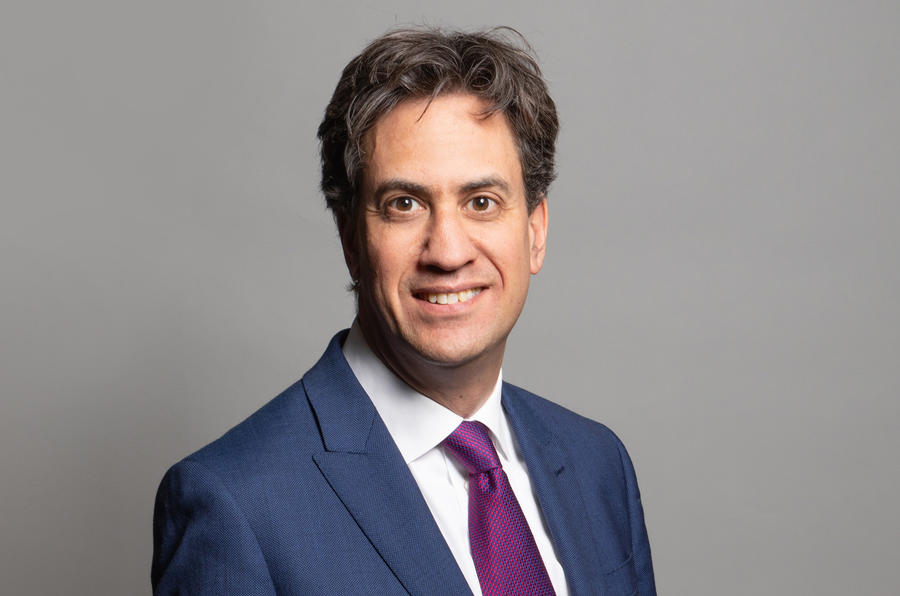Shadow business secretary Ed Miliband has backed the SMMT's call for the UK government to boost its support for the automotive industry as it continues its electrification.
Speaking at the annual SMMT Summit, the Labour MP argued that the government must supplement its bold emissions-reducing ambitions with financial aid packages for consumers, manufacturers and charging networks.
"High ambition must be matched by high support from government for the industry, consumers and workers to navigate this transition successfully," Miliband said.
"What will cause real risk for our country and the industry is if we lead the pack in ambition but lag behind in government providing the means for it to be a success."
His comments echoed those of SMMT chief executive Mike Hawes, who argued that the government's plans to ban the sale of new combustion-engined cars in 2030 and to achieve national carbon-neutrality by 2050 must be supported by extensive financial aid packages for the automotive industry.
Miliband welcomed start-up company Britishvolt's objective to open a new EV battery factory in Blyth, Northumberland, in 2023, and said he "hopes for further announcements from other companies" as "domestic battery production is absolutely key to securing the future of the industry".
In order to win the race on EV production, Miliband said, the UK government needs to "step up far more actively".
He cited data from the Faraday Institution that suggests the UK will need seven domestic EV battery factories in operation by 2040 and that new rules of origin coming into force in 2027 make it particularly pressing for the UK to ensure internal battery supply.
The £400 million allocated by the government to support battery production is "a start but not enough", according to Miliband. The government should commit up to £1.5bn, he argued, to support the construction of three new factories by 2025. "That's not a subsidy, in my view," he said. "That's an investment in our future."
Miliband noted that that 48% of new cars sold must be electric by 2025, according to the Committee for Climate Change, in order for a "smooth transition to 2030". Electric cars must be made more affordable for all consumers if that figure is to be possible, he claimed.
The government "can and should do more to help", Miliband continued. He condemned the repeated reduction of the Plug-in Car Grant and suggested a long-term interest-free loan scheme for new and second-hand EVs that would incentivise demand and facilitate the mass adoption of EVs.









Join the debate
Add your comment
I'd say Peter, that the reason is because when Labour were last in power, electric cars were still some way off of becoming a reasonable reality. Diesel was still very much king back then, pre dieselgate. Tesla were just start up company with a billionaire owner who weren't being taken seriously, and the EU hadn't brought in the CO2 limits like they have in the last couple of years.
So, Mr Miliband, bit obvious with your suggestions, why didn't YOUR Government not invest more heavily when you were in power?, it's very easy to criticise when your not in control,and we'll never see cross party co-operation to get things done, will we?
I dont know how anyone can take this dork seriously.
A failed politician recycling himself and trying to curry favour through simpering support on a topic he knows bugger-all about. Self-serving whilst reading from a crib sheet as usual.
Now if his brother (David) recycled himself, perhaps he would be taken seriously. An articulate intelligent man - complete contrast.